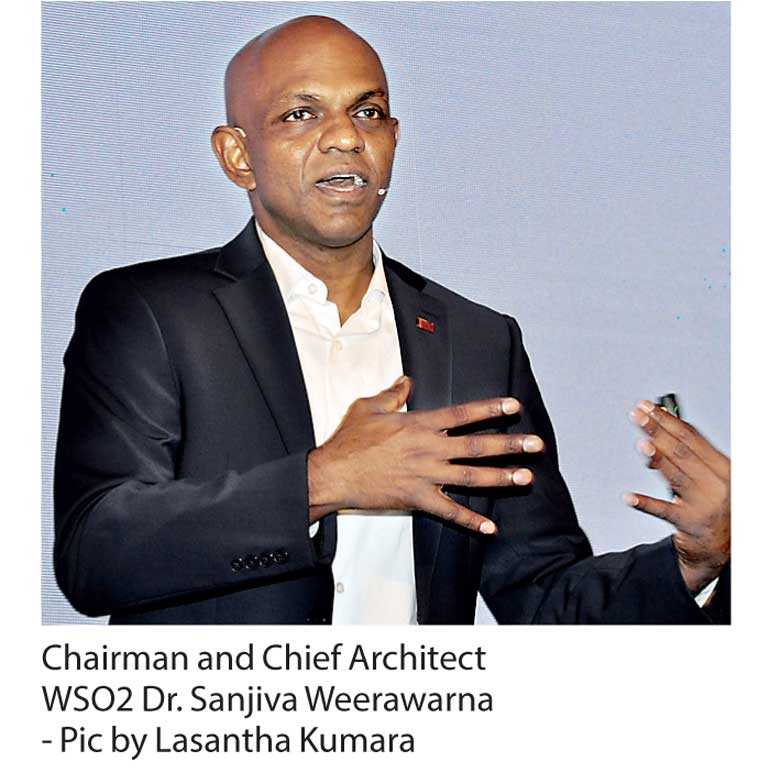Saturday Feb 28, 2026
Saturday Feb 28, 2026
Friday, 18 May 2018 00:00 - - {{hitsCtrl.values.hits}}

By Charumini de Silva
As the world transforms and digitisation has become ubiquitous across all economies, a top entrepreneur yesterday said that the future of business is all about the ability to evolve faster with ever-changing technology to grab new opportunities faster and cheaper.
Delivering the keynote address at the ‘Future of Business – Innovation in Action’ organised by the Ceylon Chamber of Commerce (CCC) WSO2 Founder, Chairman and Chief Architect Dr. Sanjiva Weerawarana outlined creating a culture that fosters entrepreneurship, innovation and agility were foundations for survival of companies in the ever-changing business landscape. “To survive, everyone must innovate. It is no longer limited to the top management. The future of the business depends on the ability to evolve faster,” he added.
Describing entrepreneurs as people who get bothered enough about problems and convert them into opportunities, he said innovation was thinking of new ways to do the old thing better or to do an entirely new thing. However, he stressed that in Sri Lanka there are only few companies that have a culture that encourages entrepreneurial innovations.
He said culture is about the people and it is not the strategy, as he believes culture is something every company creates as an inherent part of it.
“If you have a good culture, you can evolve the strategy accordingly. Fight for the culture the way it should be, not the way it was or the way it is becoming,” he urged.
Dr. Weerawarana pointed that he has not hired a single person based on a job description, because a good idea can come from anyone — even school children can be entrepreneurs, and innovation can from them too.
He noted that the only way to keep up with change was to learn every day, and the notion of ‘school for learning, then work for life’ days were over as almost all the learning materials are freely available on the internet and there is no longer a major cost attached.
“New ideas travel all over the world in a fraction of a second. Earlier, it used take decades to get an idea across the world, but it is everywhere instantly now,” he added.
Dr. Weerawarana said the technologies are ever-changing, from cloud computing, artificial intelligence (AI), internet of things (IOT), 3D printing, blockchain, quantum computing, nanotechnology, autonomous vehicles, mixed reality, and cheap power to many more.
Noting that software is at the heart of it all, he pointed out that companies need to make software its differentiator and a competency.
“Don’t use the same, because then it becomes a commodity. Take control of it and don’t become a slave to your vendor. Always enable and empower your software leader to drive the strategy of the company,” he added.
In Sri Lanka, he said that only very few people, unfortunately, have a CIO that sits on the Board whose inputs are extremely important to drive the strategy of the company.
“The businesses are going to evolve and change. The top management and the investors need to understand that and have a voice in the Board to run that strategy in a company, but too many companies still run IT as a cost centre, and that mindset needs to be changed,” Dr. Weerawarna stated.
He pointed out that there is 55% smartphone penetration in Sri Lanka, and being savvy in computing and digitalisation is a ‘must’ in the current context, noting that otherwise those who aren’t competent in these areas are going to be a weak link in a company or in an economy.
World-renowned and leading academic in development economics Professor Ricardo Hausmann also shared his insights from a global perspective pertaining to competition-led innovation.